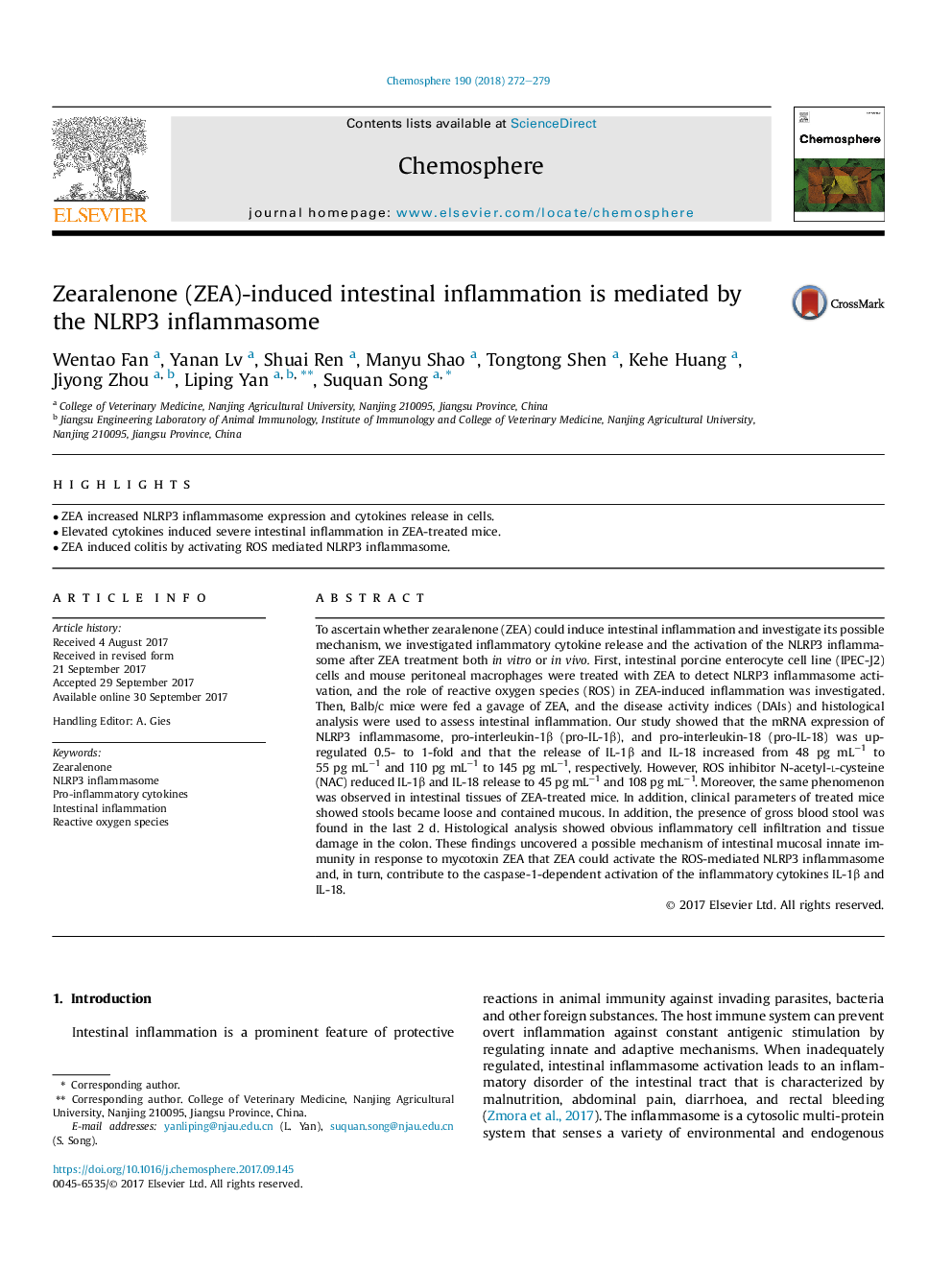| کد مقاله | کد نشریه | سال انتشار | مقاله انگلیسی | نسخه تمام متن |
|---|---|---|---|---|
| 5745787 | 1618781 | 2018 | 8 صفحه PDF | دانلود رایگان |

- ZEA increased NLRP3 inflammasome expression and cytokines release in cells.
- Elevated cytokines induced severe intestinal inflammation in ZEA-treated mice.
- ZEA induced colitis by activating ROS mediated NLRP3 inflammasome.
To ascertain whether zearalenone (ZEA) could induce intestinal inflammation and investigate its possible mechanism, we investigated inflammatory cytokine release and the activation of the NLRP3 inflammasome after ZEA treatment both in vitro or in vivo. First, intestinal porcine enterocyte cell line (IPEC-J2) cells and mouse peritoneal macrophages were treated with ZEA to detect NLRP3 inflammasome activation, and the role of reactive oxygen species (ROS) in ZEA-induced inflammation was investigated. Then, Balb/c mice were fed a gavage of ZEA, and the disease activity indices (DAIs) and histological analysis were used to assess intestinal inflammation. Our study showed that the mRNA expression of NLRP3 inflammasome, pro-interleukin-1β (pro-IL-1β), and pro-interleukin-18 (pro-IL-18) was up-regulated 0.5- to 1-fold and that the release of IL-1β and IL-18 increased from 48 pg mLâ1 to 55 pg mLâ1 and 110 pg mLâ1 to 145 pg mLâ1, respectively. However, ROS inhibitor N-acetyl-l-cysteine (NAC) reduced IL-1β and IL-18 release to 45 pg mLâ1 and 108 pg mLâ1. Moreover, the same phenomenon was observed in intestinal tissues of ZEA-treated mice. In addition, clinical parameters of treated mice showed stools became loose and contained mucous. In addition, the presence of gross blood stool was found in the last 2 d. Histological analysis showed obvious inflammatory cell infiltration and tissue damage in the colon. These findings uncovered a possible mechanism of intestinal mucosal innate immunity in response to mycotoxin ZEA that ZEA could activate the ROS-mediated NLRP3 inflammasome and, in turn, contribute to the caspase-1-dependent activation of the inflammatory cytokines IL-1β and IL-18.
Journal: Chemosphere - Volume 190, January 2018, Pages 272-279